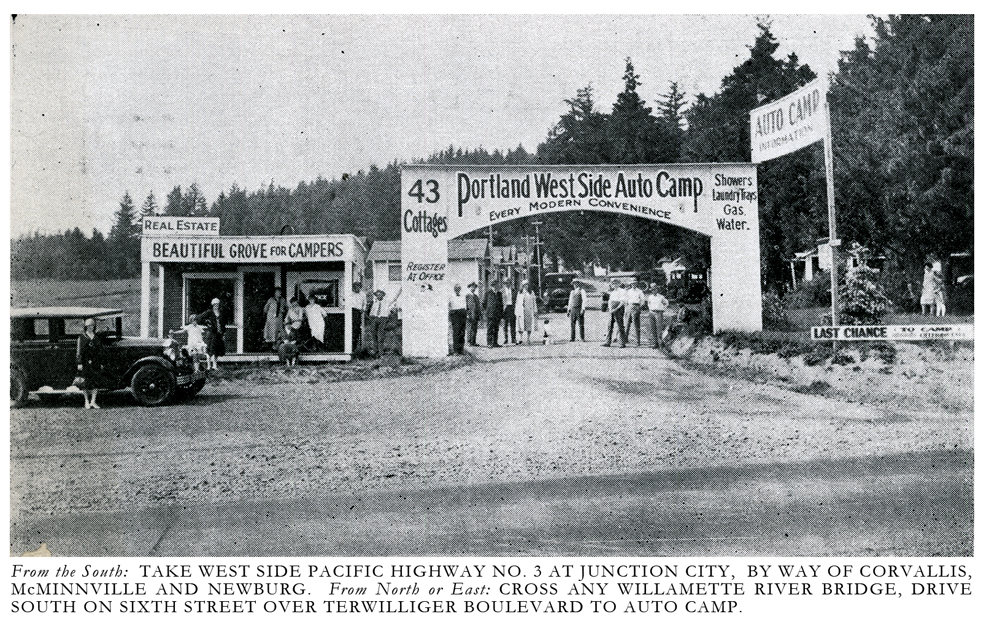
Posted March 2, 2012
http://hillsdalenews.org/

The view is looking to the northeast. Capitol Highway is in the foreground. Courtesy of the Multnomah Historical Association. Note: According to Tim Lyman from Multnomah Historical Association, the campground covered the whole block, including the current Hillsdale Library site. ReMax/Equity site was once a campground for travelers By Tim Lyman Hillsdale, with a single bed and breakfast (Terwilliger Vista) isn't known for its accommodations for travelers. As the automobile became a popular form of travel for vacationers in the 1920s, a new type of business was created to serve the motor tourist - the motel. The earliest auto camp in Southwest Portland was the Portland West Side Auto Camp, built at the heart of the John Slavin donation land claim. The claim included much of today's Hillsdale. The court is now site of the ReMax/Equity firm in the Ward Building at the busy intersection of Sunset Boulevard and Capitol Highway. Pierce closed the sanatorium in 1925 and leased the land and buildings to George and Elsie Battey, who converted the sanatorium into the Portland West Side Auto Camp. The camp evolved into a motel, and finally became a trailer park, which lasted until 1953. Had those early auto tourists known some of the cabins they were staying in once housed tuberculosis patients, the camp would have seen few guests. Tim Lyman is president of the Multnomah Historical Association, which celebrates and records the history of Southwest Portland. For more information go to the association's web site. |